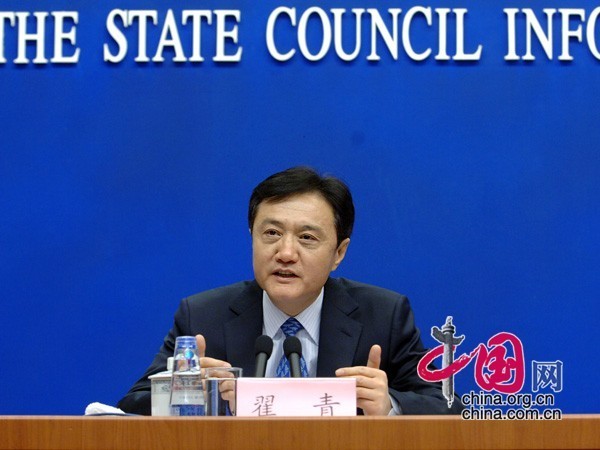China to launch major anti-pollution plans
 0 Comment(s)
0 Comment(s) Print
Print E-mail China Daily, February 12, 2014
E-mail China Daily, February 12, 2014
The central government will introduce a series of policies to implement a landmark anti-pollution action plan that aims to reduce airborne particles.
 |
|
Zhai Qing, deputy environmental protection minister, speaks during a press conference on Tuesday in Beijing. [Photo/China.org.cn] |
In its biggest move to improve poor air quality since the release of the Airborne Pollution Prevention and Control Action Plan five months ago, China will leverage pricing, taxation and investment, a senior environmental official said.
In addition, China -- the world's largest coal consumer -- will use more coal-based substitute natural gas and clean coal, under a half-dozen pending policies to accelerate adjustment of its energy structure, said Zhai Qing, vice-minister of environmental protection.
Under the action plan, the government will seek to cut the density of inhalable particulate matter by at least 10 percent in major cities by 2017.
PM2.5, a key indicator of air pollution, should drop 25 percent from 2012 levels in the Chinese capital and its vicinity. PM2.5 refers to particulate matter up to 2.5 micrometers in diameter.
"For a document (action plan) to be carried through, it must be followed with detailed and conscientious measures," Zhai said. "We have worked with some other ministries and hammered out 22 policies that have to be carried out in the near future."
The State Council will examine the 22 policies, of which 10 are economic and another six related to management, in the days to come, Zhai said.
"After their approval, we'll go all out to carry them out," he said at a Tuesday news conference at the State Council Information Office in Beijing.
Although details of the policy package were not immediately available, analysts said the plan boils down to cleaning up the air by slashing coal use, phasing out polluters and promoting cleaner production, echoing the theme of the action plan.
Already, Beijing, which reported a total of nearly two months of serious pollution last year, will cut coal use by 2.6 million metric tons and upgrade 300 polluting firms this year to reduce their emissions, Mayor Wang Anshun said last month.





